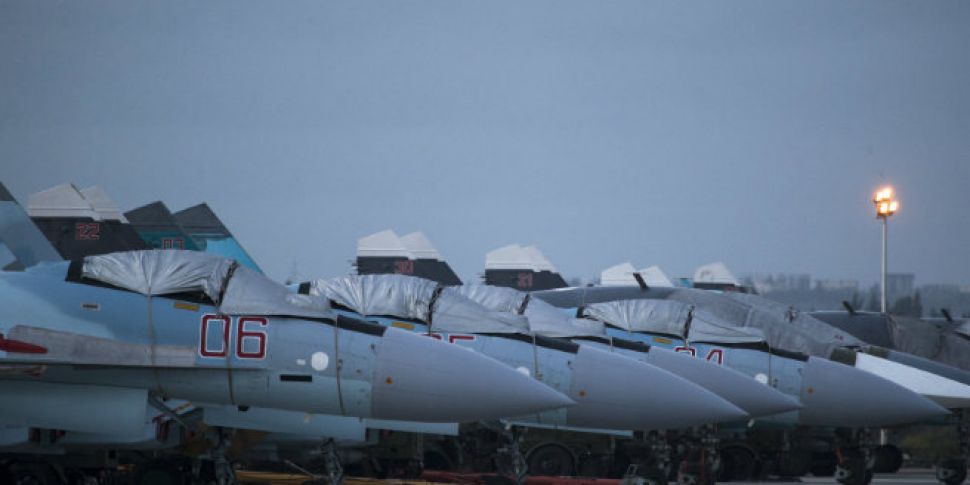Russia has said it will continue to "target terrorists" in Syria, despite appearing to begin the withdrawal of military equipment.
Russian state television showed footage of bombers leaving the Hmeymim air base and several Su-34 fighters later arriving to a hero's welcome at an airbase outside the city of Voronezh, about 360 miles southeast of Moscow.
It comes hours after President Vladimir Putin ordered his troops to begin pulling out of the war-torn country, reportedly agreed during a telephone call with Syrian president Bashar al Assad.
During a meeting in the Kremlin with his ministers, Mr Putin had said the military had achieved its aim and that it had "created the conditions for the start of the peace process".
But the head of the defence committee in Russia's upper house of parliament, Viktor Ozerov, said on Tuesday that about 1,000 Russian military personnel will remain in Syria at two bases, Interfax news agency reported.
Russia has never said how many troops it has in Syria but US estimates range from 3,000 to 6,000, along with more than 50 jets and helicopters.
RIA news agency also quoted the Russian deputy defence minister as saying Russia would continue airstrikes against "terrorists" in Syria.
Nikolai Pankov said "certain positive results" had been achieved, but it was "still early to talk about victory over terrorism".
"The Russian aviation group has the task to continue carrying out strikes on terrorist facilities."
"Confronting terrorism"
Also on Tuesday, the Kremlin's chief of staff Sergei Ivanov was quoted as saying that Moscow would keep its advanced air defence systems in Syria "to efficiently ensure security".
Damascus had said on Monday that Moscow had pledged to continue to support the country in "confronting terrorism".
During the past five months, airstrikes by Russian warplanes against Syrian opposition forces have reversed the tide of the bloody civil war and put the forces of Assad on the front foot, ahead of the recent fragile ceasefire.
The withdrawal was hailed as a political victory by pro-Kremlin media such as the Izvestia daily, which described it as "setting an example of a peaceful approach to settling conflict".
The UN special envoy for Syria Staffan de Mistura called it a "significant development", adding that he hoped the drawdown would have a "positive impact" on negotiations aimed at finding a political solution to Syria's war.
Syria's main opposition gave Russia's decision a cautious welcome, but raised concerns it could be "a trick" but on Tuesday, opposition spokesman Salim al-Muslat said that the Russian withdrawal could also help bring about an end to Assad's "dictatorship and his crimes".
The UK foreign secretary Philip Hammond said that Russia's vow to continue their strikes on "terrorists" was "not terribly re-assuring", adding: "This is exactly the formula the Russians have used in the past when attacking the moderate opposition".
Aid agencies mark anniversary
Aid agencies have been outlining the scale of the problems caused after five years of war in Syria.
Unicef says 306,000 Syrian children have been born as refugees since the conflict began, they represent a third of all Syrian children born in the last five years.
Peter Power, Executive Director of UNICEF Ireland says: "Five years into the war, millions of children have grown up too fast and way ahead of their time,” Power said. “As the war continues, children are fighting an adult war, they are continuing to drop out of school, and many are forced into labour, while girls are marrying early."
Meanwhile, the Immigrant Council of Ireland says the failure to end the war in Syria has fuelled a humanitarian crisis.
CEO Brian Killoran says the EU has been too slow in trying to deal with the refugees fleeing the conflict.









